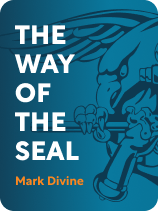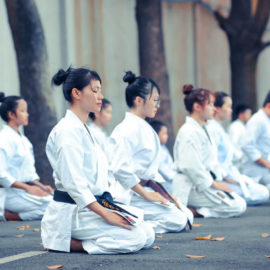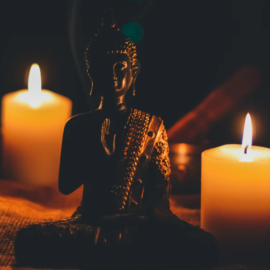

This article is an excerpt from the Shortform book guide to "The Way of the SEAL" by Mark Divine. Shortform has the world's best summaries and analyses of books you should be reading.
Like this article? Sign up for a free trial here.
What do you cherish most in life? How do you identify your values?
Central to your compass is your values—the things most important to you in life and that you won’t compromise on. According to Mark Divine’s book The Way of the SEAL, values guide your actions and keep you on track.
Continue reading to learn how to identify your values.
Identify Your Values
Divine says that learning how to identify your values can help you make difficult, life-altering choices, as it helped him. Shortly after he got married, the Navy deployed him to multiple locations for extended periods—leaving his wife home alone. When she said she couldn’t continue their marriage without him home more consistently, Divine thought about what he really wanted in life. He loved his SEAL adventures and team, but his inner compass centered on a pledge to live in the present, allow the past to be the past, and create the future he wanted—in this case, a family. Divine left active service for the reserve SEALs and his marriage. He says living his values was the right choice.
(Shortform note: Relinquishing one dream for another to stay true to your values may be the right thing to do, but psychologists say it’s not always easy to do because Western society has an anti-quitter bias that stigmatizes giving up. Different from failure, which is often seen as a sign of strength (we admire people who fail, get back up, and try again), giving up is viewed as a sign of weakness. People who do it get little sympathy and are seen as having nothing to teach others. The bias is so strong that it makes people stay in unhealthy jobs and relationships.)
To identify your values, reflect on how you’d react in different challenging situations. First, get a pen and paper and find a quiet place to sit. Sit up straight, close your eyes, and spend five minutes breathing deeply from your abdomen to relax your body and connect with your subconscious. When you’re done, open your eyes and jot down what you would do if you:
- Saw someone drowning in the ocean
- Witnessed someone shoplifting baby formula
- Saw someone being bullied by a group of people
- Were asked to donate a kidney to save someone you don’t know
Reflect on your answers. What do they suggest about the type of person you are? How does this match up with values you want to embody? For instance, are your answers self-protective or focused on helping others? If your answers aren’t aligned with who you want to be, it’s an opportunity to explore ways you can develop the values you want to live.
Once you have a sense of some values you’d like to embody, Divine recommends that you live by those values so they become an integral part of you.
To do this, get paper and a pen. List qualities you’d like to embody (for example, the ones you identified in the exercise above) and avoid. For example, maybe you’d like to be more authentic and connected, and less critical and negative. Once you have your list, write down small actions that will make you become more of the things you want to be and less of the things you don’t.
For example: “When I share with my partner how I truly feel about them and thank them for loving me, I become more authentic.”
Once you’ve completed this practice, write six to 10 statements reflecting on the qualities that resonate most with you to solidify your values and who you want to be.
Choose and Prioritize Your Values
In Awaken the Giant Within, Tony Robbins says that you may not know what your values are because they often develop without your conscious input. You come to your values implicitly from your experiences and things you learned from your parents, friends, teachers, and the broader culture around you.
To determine what you want your values to be, first reflect on your current values, understanding that there are two types of values:
- Ends: The emotional states you want to experience like love and happiness. These values make your life fulfilling.
- Means: The way you get to the ends. For example, you may value caring for animals, and see that as a way to feel love and happiness.
Second, consider your value hierarchy. Like Divine, Robbins recommends that you list values you want to move toward and away from. Different from Divine, Robbins says you should prioritize and rank your values. This helps you see which are strongest and how they’ve shaped your life, and consider which actions you want to take and avoid in the future.
Finally, assess your list. Think about how your values influence what your life looks like right now and how you’d like it to look down the line. Then:
- List values that aren’t on your priority list that you’ll need to be your best self.
- Eliminate values from your priority list that are already ingrained in you.
- Assess the benefits and drawbacks of each value and its placement on your list.
- Review, prioritize, and reorder your values.
- Hang your list somewhere you’ll see it every day, and tell people about it to keep yourself accountable for living by your newly prioritized values.

———End of Preview———
Like what you just read? Read the rest of the world's best book summary and analysis of Mark Divine's "The Way of the SEAL" at Shortform.
Here's what you'll find in our full The Way of the SEAL summary:
- A former Navy SEAL's strategies to help business leaders
- A mind-body technique that combines yoga, martial arts, and SEAL training
- How to bolster and harness your mental fortitude






